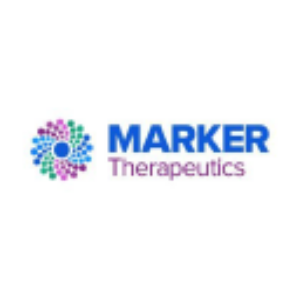Marker Therapeutics Awarded $2 Million Grant from U.S. FDA to Support Marker’s Phase 2 ARTEMIS Trial of MT-401 in Post-Transplant AML
Marker Therapeutics has received a $2 million grant from the FDA's Orphan Products Grants program to support its Phase 2 ARTEMIS trial of the multi-antigen targeted T cell therapy, MT-401, in patients with post-transplant acute myeloid leukemia (AML). This grant will fund the evaluation of MT-401 in patients with minimal residual disease after stem cell transplant. The trial aims to assess relapse-free survival and treatment efficacy, with promising initial results suggesting potential benefits for patients facing limited treatment options.
- Awarded $2 million FDA grant for the Phase 2 ARTEMIS trial.
- MT-401 shows promising results among MRD+ patients.
- MT-401 has Orphan Drug Designation since 2020.
- None.
Insights
Analyzing...
Award to fund clinical study of Marker’s multi-antigen targeted T cell therapy for the treatment of post-transplant AML patients with minimal residual disease
HOUSTON, Sept. 13, 2022 (GLOBE NEWSWIRE) -- Marker Therapeutics, Inc. (Nasdaq:MRKR), a clinical-stage immuno-oncology company specializing in the development of next-generation T cell-based immunotherapies for the treatment of hematological malignancies and solid tumor indications, today announced that the Company has been awarded a
The FDA grant will support the Company’s treatment arm evaluating MT-401 in patients with post-transplant AML with minimal residual disease. MT-401 was granted Orphan Drug Designation for the treatment of patients with AML following allogeneic stem cell transplant in 2020.
"We are pleased to receive this Orphan Products award from the FDA to further clinical development of our multi-antigen targeted T cell therapy in AML, a rare disease with limited treatment options after a stem cell transplant," said Dr. Mythili Koneru, Marker’s Chief Medical Officer. “In our Phase II ARTEMIS study for patients with post-transplant AML, we have observed promising results amongst the MRD+ patients, suggesting that MT-401’s unique and differentiated targeting technology can potentially reach MRD positive patients before relapse. This grant will enable us to further advance our development of MT-401 to potentially treat a patient population where no treatments have been approved. We look forward to further exploration in this patient population.”
About Marker's Phase 2 ARTEMIS Trial
The multicenter Phase 2 AML study is evaluating the clinical efficacy of MT-401 in patients with AML following an allogeneic stem-cell transplant in both the adjuvant and active disease setting. In the adjuvant setting, approximately 120 patients will be randomized 1:1 to either MT-401 at 90 days post-transplant versus standard-of-care observation, while approximately 40 patients with active disease will receive MT-401 as part of the single-arm group.
The primary objectives of the trial are to evaluate relapse-free survival in the adjuvant group and determine the complete remission rate and duration of complete remission in active disease patients. Additional objectives include, for the adjuvant group, overall survival and graft-versus-host disease relapse-free survival while additional objectives for the active disease group include overall response rate, duration of response, progression-free survival and overall survival.
About the U.S. FDA Orphan Products Grants Program
The FDA’s Orphan Products Grants Program awards grants to clinical investigators to support the development of safe and effective medical products for patients with rare diseases. The program has supported clinical research since 1983 and has funded clinical trials that have facilitated the approval of more than 70 products.
About Marker Therapeutics, Inc.
Marker Therapeutics, Inc. is a clinical-stage immuno-oncology company specializing in the development of next-generation T cell-based immunotherapies for the treatment of hematological malignancies and solid tumor indications. Marker’s cell therapy technology is based on the selective expansion of non-engineered, tumor-specific T cells that recognize tumor associated antigens (i.e. tumor targets) and kill tumor cells expressing those targets. This population of T cells is designed to attack multiple tumor targets following infusion into patients and to activate the patient’s immune system to produce broad spectrum anti-tumor activity. Because Marker does not genetically engineer its T cell therapies, we believe that our product candidates will be easier and less expensive to manufacture, with reduced toxicities, compared to current engineered CAR-T and TCR-based approaches, and may provide patients with meaningful clinical benefit. As a result, Marker believes its portfolio of T cell therapies has a compelling product profile, as compared to current gene-modified CAR-T and TCR-based therapies.
To receive future press releases via email, please visit: https://www.markertherapeutics.com/email-alerts.
Forward-Looking Statements
This release contains forward-looking statements for purposes of the safe harbor provisions of the Private Securities Litigation Reform Act of 1995. Statements in this news release concerning the Company’s expectations, plans, business outlook or future performance, and any other statements concerning assumptions made or expectations as to any future events, conditions, performance or other matters, are “forward-looking statements.” Forward-looking statements include statements regarding our intentions, beliefs, projections, outlook, analyses or current expectations concerning, among other things: our research, development and regulatory activities and expectations relating to our non-engineered multi-tumor antigen specific T cell therapies; the effectiveness of these programs or the possible range of application and potential curative effects and safety in the treatment of diseases; and the timing, conduct and success of our clinical trials, including the Phase 2 trial of MT-401. Forward-looking statements are by their nature subject to risks, uncertainties and other factors which could cause actual results to differ materially from those stated in such statements. Such risks, uncertainties and factors include, but are not limited to the risks set forth in the Company’s most recent Form 10-K, 10-Q and other SEC filings which are available through EDGAR at www.sec.gov. Such risks and uncertainties may be amplified by the COVID-19 pandemic and its impact on our business and the global economy. The Company assumes no obligation to update our forward-looking statements whether as a result of new information, future events or otherwise, after the date of this press release.
Contact:
Neda Safarzadeh
Vice President/Head of Investor Relations, PR & Marketing
Marker Therapeutics
(713) 400-6451
investor.relations@markertherapeutics.com








